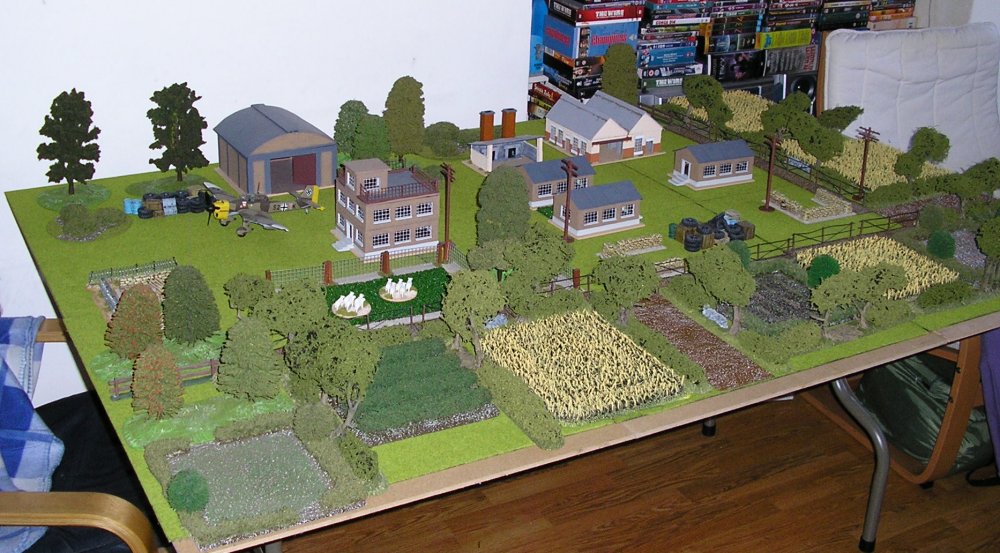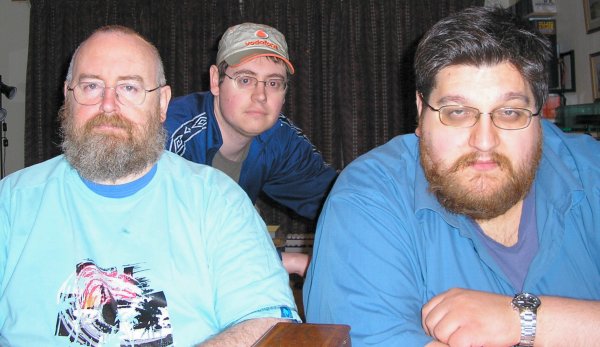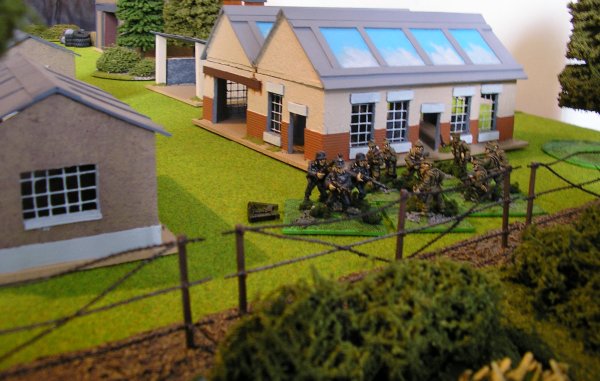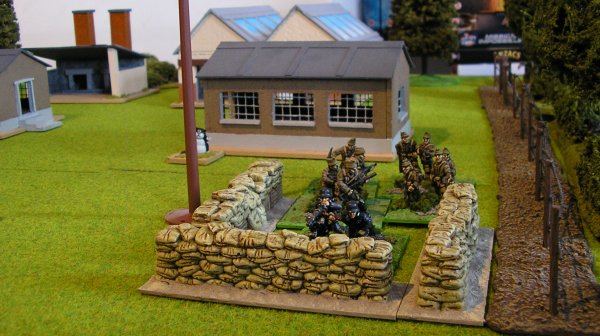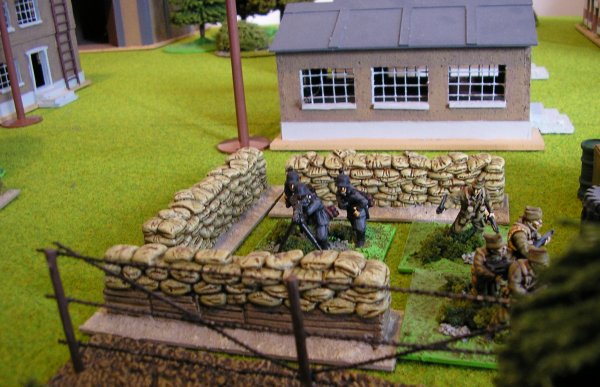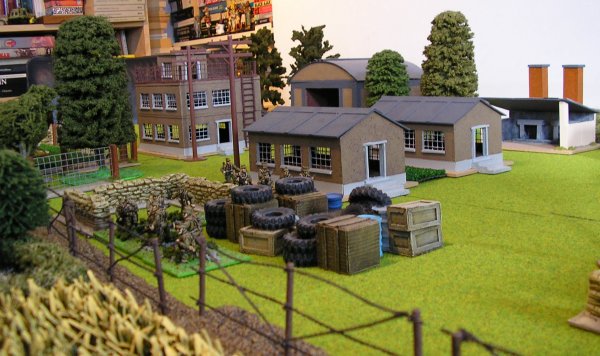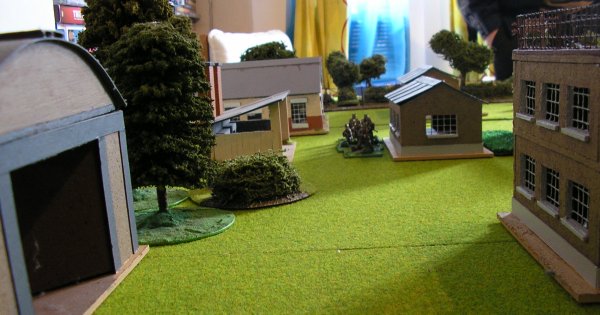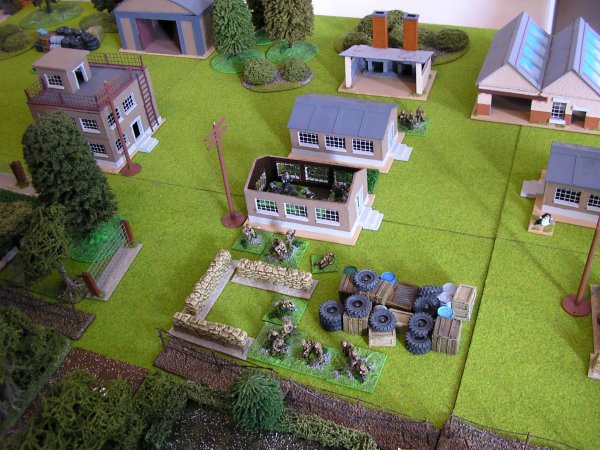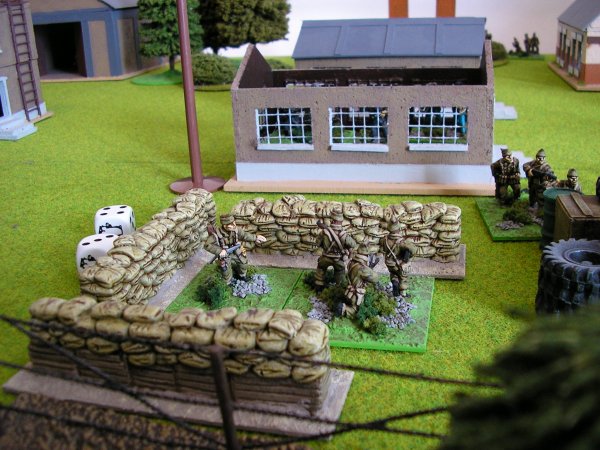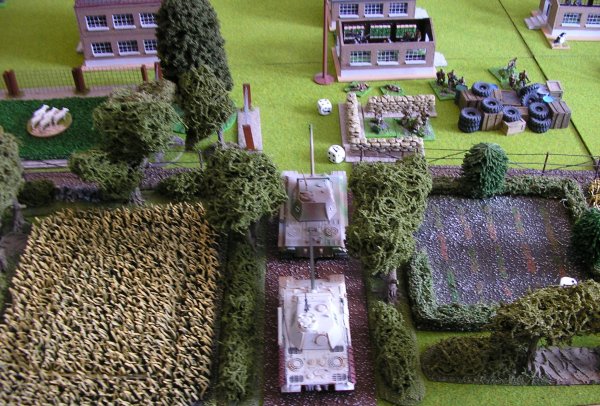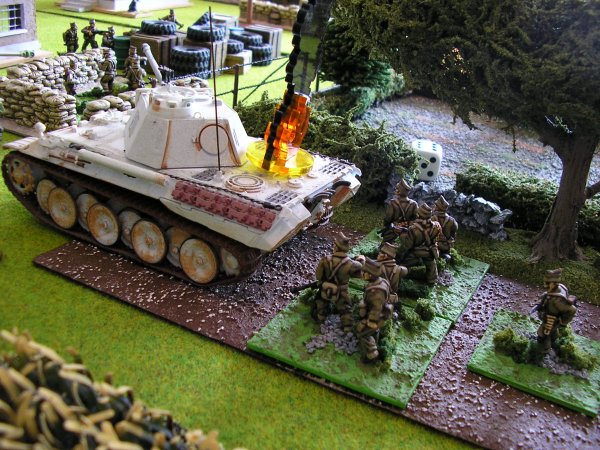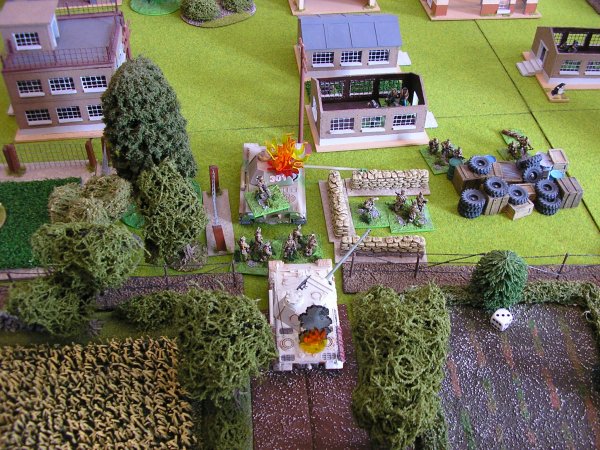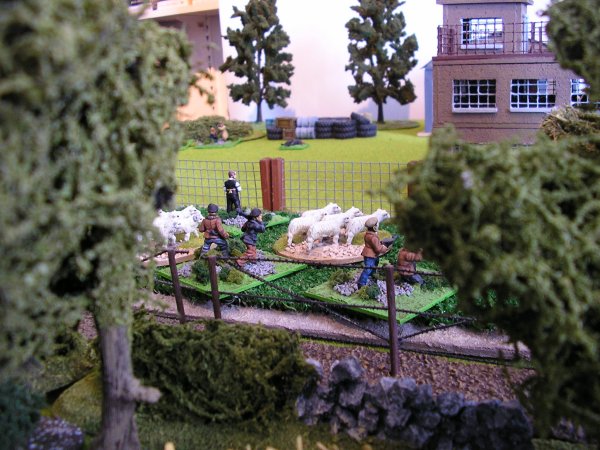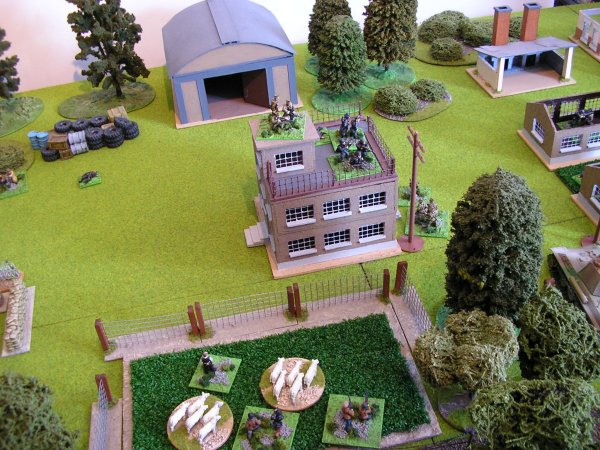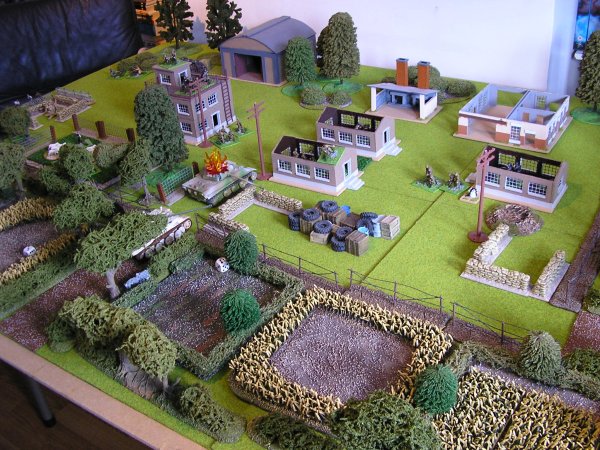|
World Crossfire Day 2009
One man with an idea: One campaign, one hundred and forty-three pages, forty-three thousand, six hundred and eighty three words, fifty-three players, nineteen games in seven countries spreading across the globe from Hong Kong to California. All played in one day, thirty-one hours of real time, fifteen hours of game time, one day in the Allied advance across Europe, one day in April for the players, one day in history for the greatest World War Two game ever devised: World Crossfire Day. Nikolas Lloyd mentioned his idea for a World Crossfire Day on the Crossfire Yahoo Group and solicited names for inclusion. I, and many others, decided this was a good thing to do and signed up. After that, all I and the other participants had to do was submit a list of out crossfire resources and Lloyd did the rest. A somewhat unequal distribution of effort. Scenarios were designed and sent out, tables were laid out and battlefields built. Armies were assembled and, finally, games were played. Results from the early games were available to read by the time I awoke on Saturday morning, although my April 4th was just starting in England, other people had watched the sun rise over them many hours before in other parts of the world. My game was the sixth one of the nineteen scheduled. There are more detailed write ups of the event here: WCFD 2009 - All 19 Campaign Games Summarised - Read a brief summary of each game and the Result & Victory Points - will the Allies succeed in snaring the Germans?! WCFD 2009 - Game 1 Report - Here's the report of the Wargaming.info game that kicked off World Crossfire Day 2009. WCFD 2009 - Game 2 Report - located at Wargaming.info. WCFD 2009 - Game 4 Report - located at the Hong Kong Society of Wargamers. WCFD 2009 - Game 6 Report - My game, the introduction is further down the page and the game report is to the right. WCFD 2009 - Game 8 Report - in Steven Thomas' Balagan. WCFD 2009 - Game 9 Report - located at Wargaming.info. WCFD 2009 - Game 10A Report & Game 10B Report at the Warmongers Convention. WCFD 2009 - Game 11 Report & Game 15 Report - on Flickr. WCFD 2009 - Game 13 Report - at Tim Marshal's site. WCFD 2009 - Game 18 Report - located at Wargaming.info. My Game
German briefing It looks like the war is being lost. Hitler said that the allies would be thrown back at the beaches of Normandy, and it seems he was very wrong. Now the allied artillery can be heard from your little aerodrome. You’ve been enjoying lots of back-handers from the big-wigs of the Third Reich, and even bribes from the French resistance to look the other way, and your days of easy money are over. Now you will have to work hard to carry out your orders: guard the aerodrome. Your forces are all green (not front-line troops instead considered fit for guard duty and little else) and in need of training. Just today you had them all carry out marksmanship practice and the results were not encouraging. You’ve told them to practice in their own time for the sake of their own survival. You’ve heard them firing on and off during the day, but what can they learn in a couple of days? Twice today there have been false alarms amongst the guards (a lot of ammunition was wasted) and daft rumours are spreading amongst the men. With a bit of luck you’ll be flown out of here pretty soon. With bad luck you’ll be left behind in the retreat. Still surrendering to the British is a much more cosy prospect than living to fight on the Russian front. Yesterday a group of escaped British airmen tried to make off with one of your aircraft. You captured them, and now hold them prisoner in a building of your choice. You reported this, and are expecting someone to come and pick them up. Your force: Company Commander +0 Three platoons with each Platoon Commander (+1), three rifle stands. One platoon (green) engineers (rifles), with +1PC and two rifle stands. One stand vehicle crewmen 2 HMGs 1 AA gun of the rapid fire small calibre sort. (4d6 vs ground targets, if the first roll result is a pin, roll once more, ignore soft cover). One small AFV This starts with no crew and parked in the hangar out of sight. One of your platoons you must deploy in the buildings at rest. One can be deployed posted in guard positions, along with the HMGs and the AA gun, and the third and fourth (engineers), and vehicle crew start off-table. The off-table platoons can be summoned only once the alarm has been raised. To summon one, roll 5+ on 1d6 (like a rally roll, this risks the initiative). It will enter along one of the roads (chosen at random by the umpire) or in cover immediately next to one of these roads. Only one can be summoned in an initiative. British briefing
You command a company of commandos, tasked with taking over an aerodrome. All going well, you will take the place with hardly a shot fired. Your men are elite and independent (German-like C and C). Sneak in, keep out of sight. Some of your men have silenced firearms, and all are trained to take out sentries with a dagger. You start the game with the initiative. You are lucky, because the allied operation is creating a lot of noise. Allied bombers are raiding nearby, and the AA gun on the aerodrome is making a racket as it fires the occasional burst at passing aircraft (so time your moves to coincide with the bursts). German artillery are stationed not far away and they are making a din too. All this noise makes life easier for anyone trying to be sneaky. Prisoners are good, and the higher-ranking the better. The umpire will tell you how to do this when you attempt it, and how to guard prisoners afterwards. You can also kill quietly. To do this, you have to sneak up to base-to-base distance without being seen. From the rear 180 degrees, the reactive roll (equivalent to reactive shooting but a reactive “spot”) is 5+, from the front arc it is 3+, -1 if the commandos are in cover. Then you must win a close combat. If you do, the alarm is not raised. You can sneak this way to any position, but only one base of commandos can sneak up to base-to-base contact with a base of Germans. Your orders are to take the aerodrome intact if you can. The allies want to use it for their own aircraft as soon as possible (which could be as soon as four hours from now). You are to hold the aerodrome until relieved, and it is expected that this will be at 1600 hours GT at the earliest. Your force: One small troop commandos (veterans) Company Commander +2 Forward Observation Officer for 3” mortar and 12 Fire Missions (N.B. using this WILL raise the alarm! It is to defend the aerodrome against counter-attack, not for attacking the aerodrome and damaging it). One 2” mortar with 4FMs of smoke. This is to be used AFTER the alarm is raised, but can be used without trouble on targets within the aerodrome. Three platoons, each with 1 Platoon Commander (+2) 2 rifle sections. Up to three infantry stands total may be armed with PIAT. You enter from a side of the table of your choice. You start with the initiative. A particularly unflattering photo of me (Umpire), Kevin (British) and Giro (German).
|
WCFD 2009 - Game 6 Report
The first platoon of Commandos swarmed over the perimeter fence straight into a German patrol. The Germans managed a single shot before being bundled to the ground and knifed to death. The Commandos paused to see if any alarm would be raised but the airfield remained quiet.
Silently the khaki killers approached the first machine gun nest and pounced. The gun crew were dispatched without a sound.
The Commandos silenced the second gun in the same way. So far, so good.
After a little while scouting around the raiders detected both German and English voices from one of the huts, it seemed a German officer was conducting some sort of interrogation of prisoners inside. The Commandos decided to attack without delay.
Meanwhile a second platoon was furtively making its way around the rear of the base.
The British run of good luck ended when their assault was repulsed by the Germans in the hut. One squad of British was eliminated in the fierce exchange of fire.
As the survivors retreated to the cover of the machine gun pit klaxons rang out around the camp. The time for secrecy was over.
Fifteen minutes of exchanging gunfire followed with no end in sight when the ground shook to the roar of approaching tanks. Consternation swept the British ranks as two Panthers appeared at the main gate to the airfield and started to fire their main guns and machine guns into the compound. However, despite the noise and commotion the Commandos soon realised that the tanks were not actually inflicting any casualties, their aim was way off, perhaps the nearness of their targets meant they couldn't depress their guns enough?
None-the-less the British were still pinned down and it wouldn't be long before the garrison rallied or more troops appeared. Something had to be done. Sgt Sone, 'Stonecold' to his men, extracted his platoon from the workshop building they had been occupying and, under heavy fire, made his way into the surrounding fields. Once under cover of the vegetation he and his men moved quickly around the perimeter of the airfield and arrived, unnoticed, behind the rear Panther. his men swarmed over the vehicle filling vision slits and hatches with hot lead and grenades. In seconds the tank's fire stopped and smoke began to billow out of it.
Flushed with success, and with no regard for his own safety, Sgt Stone led his victorious men in an assault on the second enemy tank; this too was destroyed in double quick time with no loss of life to the attackers.
With the immediate threat of the enemy armour neutralised the Commandos stepped up their attack. Accurate mortar fire on to one hut silenced the enemy within and a second assault on the other killed the Germans, captured their officer and freed the British airmen that were being (roughly) interrogated there. As the Commandos drew breath and contemplated their final assault on the main airfield building from which the remaining Germans were still putting up a spirited defence they were astonished and pleased to hear gunfire and raised French voices from the other end of the airfield. The resistance had arrived!
The French seemed intent on killing anything that moved and didn't seem too concerned with conserving ammunition either. The British kept their heads down as rounds headed their way from both French and German rifles. Then, unexpectedly, the firing from within the control tower stopped. Could the French have actually done some good with their wild shooting?
'Now or never men' shouted Sgt Stone as he led a charge into the building, coming under French fire the whole way. Once inside the Commandos made short work of capturing the remaining Germans, including the airfield Commander, who were all cowering in corners. Outside the French shooting finally died down as the English Pilots explained the situation to the resistance leader (the owner of a cafe in town).
After a quick conference the resistance went off to sabotage the local railway line and the British settled down to await a German counter attack or the relief column, whichever arrived first. Allied victory: Inflicted 86 -20 losses +20 captured -8 Time Penalty +65 objective = 143 |

